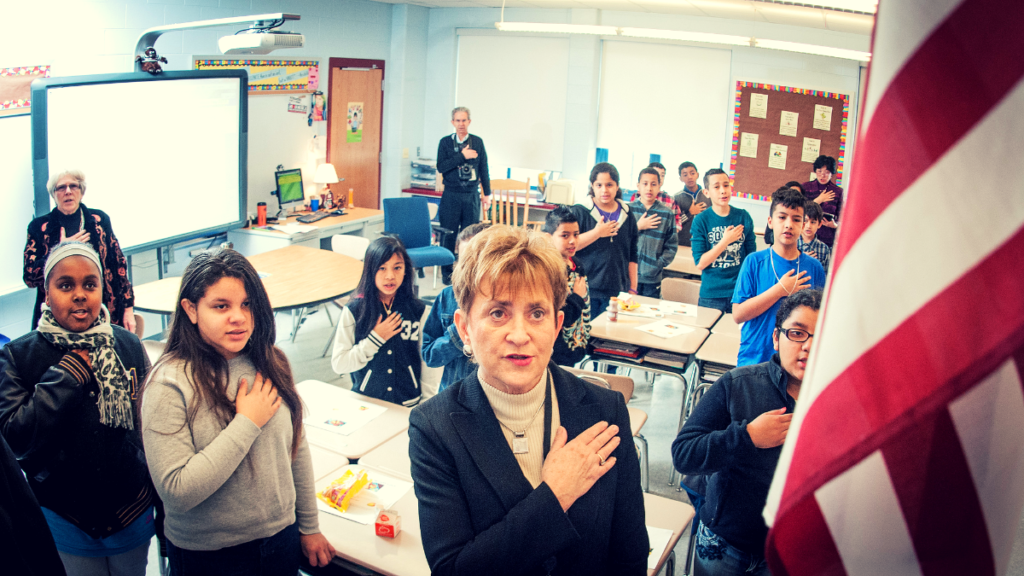Americans concerned about the dismal state of public education in many schools increasingly want more choice, competition, and local control. Such people may draw inspiration from the wisdom of 20th-century theologian J. Gresham Machen, who affirmed the necessity of “absolutely unlimited competition” in education.
Who was J. Gresham Machen?
The famous journalist and skeptic H.L. Mencken wrote an obituary on January 18, 1937, that praised “a man of great learning” and “sharp intelligence.” That man was J. Gresham Machen, a Protestant theologian who taught at Princeton Theological Seminary before going on to found Westminster Theological Seminary in Philadelphia in the 1930s.
Mencken was no Christian believer, but he did nevertheless “greatly admire” Machen’s consistent defense of freedom[1] and his “remarkable clarity and cogency” in argumentation.[2]
“The worst fate into which any country can fall”
In 1926, Machen testified before a congressional committee regarding a proposed federal department of education. Machen wasted no time in getting to the heart of the matter. In the first minute of his testimony, he explained that the purpose of the bill was “to promote uniformity in education,” which, he asserted, “is the worst fate into which any country can fall.”
A radical position? Yes. But take a moment to consider some of the reasoning that led him to it.
First, it will be of some value to point out that Machen was not blind to the obvious benefits of public education. He admits in the first chapter of his most famous book, Christianity and Liberalism, that “A public school system, in itself, is indeed of enormous benefit to the [human] race” and “a noteworthy and beneficent achievement of modern times” due to its delivery of at least a rudimentary education to larger portions of the population than had been known in most societies before modern times.[3]
Moreover, Machen stated in his congressional testimony that in the absence of federally enforced uniformity in education that “there have been grievous sins in the sphere of education on the part of individual states,” not to mention “a lot of crazy private schools and church schools.” In other words, Machen admitted what we all must: liberty can be a messy affair.
Nevertheless, the medicine of uniformity in education was, for Machen, worse than the disease of “crazy private schools.”
We must consider, second, Machen’s response to the notion of uniformity: he demanded the circumscribing of any federal education system with the “absolutely free possibility of competition” from various types of private schools. Without this, governmentally enforced uniformity in education would be “the most perfect instrument of tyranny which has yet been devised,”[4] due to its power to control thought and to encourage widespread mediocrity.
Machen left no room for doubt about his suspicions that a distant, centralized state had no authority, much less ability, to educate children well:
Place the lives of children in their formative years, despite the convictions of their parents, under the intimate control of experts appointed by the state, force them then to attend schools where the higher aspirations of humanity are crushed out … and it is difficult to see how even the remnants of liberty can subsist.”]
Machen feared that state-enforced uniformity in education would produce a mediocre populace unable to sustain a free society”]
Instead, such a system would produce “one huge ‘Main Street,’ where spiritual adventure will be discouraged and democracy will be regarded as consisting in the reduction of all mankind to the proportions of the narrowest and least gifted of the citizens.” In brief, Machen feared that state-enforced uniformity in education would produce a mediocre populace unable to sustain a free society.
[1] For example, during a national debate over a proposed child labor amendment to the U.S. Constitution, Machen called it “one of the most cruel and heartless measures that have ever been proposed in the name of philanthropy” due to the likely consequence that it would lead to a variety of unintended consequences including greater poverty in American society and harsher working conditions for children who would still find work but under less salutary conditions. Lawrence W. Reed, Real Heroes: Inspiring True Stories of Courage, Character, and Conviction (Wilmington, Delaware: ISI Books, 2016), 133.
[2] Those interested in reading more about Mencken’s assessment of Machen are directed to D.G. Hart, Damning Words: The Life and Religious Times of H.L. Mencken (Grand Rapids, Michigan: Eerdmans Publishing, 2016).
[3] J. Gresham Machen, Christianity and Liberalism (Grand Rapids, Michigan: Eerdmans Publishing, 2009), Chapter 1.
[4] Ibid.



